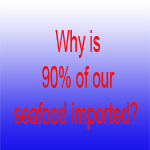
Caribbean Whaler a Legend on Island
by
Chris Hawley
Associated Press Writer

Caribbean Whaler a Legend on Island
by
Chris Hawley
Associated Press Writer
 |
 |
05/24/99 ST. GEORGE'S, Grenada (AP) - On the tiny island of Bequia, he's a legend - a 77-year-old man with a harpoon, the custodian of a whale-hunting tradition. To whale conservationists outraged at his alleged killing of two endangered humpback whale calves and their mothers, he's a menace. Now, Athneal Ollivierre is defending himself before the 40-nation International Whaling Commission, meeting this week to hear calls to ease a worldwide ban on commercial whaling. ``It's our tradition, and I don't want that tradition to change,'' said Ollivierre, who hunts on a license held by the Caribbean nation of St. Vincent and the Grenadines, which has permission to kill two humpbacks a year for their meat. Such rights are generally reserved for indigenous tribes in the Arctic region, not tourism-driven countries like St. Vincent - especially with only about 8,000 humpbacks left worldwide, down from 100,000 just a few decades ago. St. Vincent is the only Caribbean nation with whaling rights. ``This is not the Far North where the only source of protein for people is what comes out of the s seas,'' said Sue Fisher, campaign manager for the Britain-based Whale and Dolphin Conservation Society. ``St. Vincent is a relatively developed place, and when there hasn't been a whale taken in a year, people haven't starved to death.'' That, essentially, is the difference between ``subsistence'' whaling, which even conservationists consider legitimate, and ``commercial'' whaling for profit, which has been banned by the commission since 1986. But Ollivierre argues there's another issue: preserving tradition, an argument made by indigenous tribes from North America to Japan. The first whale kill in 70 years by Washington state's Makah Indians last week - carried out with permission from the United States - will probably be used by pro-whaling nations to press the commission to ease restrictions. Ollivierre comes from a family that has hunted whales for over a century. He learned whaling by watching his uncles. Then, in 1953, he built a 27-foot wooden boat, bought a harpoon and set out whaling himself. He estimates he's killed about 80 humpback and sperm whales since then. Ollivierre still goes out in his sailboat nearly every day of the February-to-April migration season, scanning the horizon under a blazing sun and usually returning empty-handed. Between 1994 and 1998, he didn't catch a single whale. During the hunt, Ollivierre and his oarsmen must first sneak up on the whale from behind, close to the dangerously strong tail. Then to slow it down, Ollivierre stuns it with a rifle and a dart gun. The kill is usually carried out with three harpoons driven through the animal's back, into its heart. Tying the carcass to the boat requires four men in the bloody water - two handling the ropes, two watching for sharks, he said. It would be easier with a motorboat and explosive harpoons - but for tradition's sake Ollivierre uses only sails, oars and 9-foot, 20-pound harpoons. And it gets riskier with advancing age. Once a harpooned whale dragged his boat underwater, hurling crew members into the waves; Ollivierre held on and managed to cut the ropes as the beast fled, but he nearly drowned. In 1992, a harpoon rope snapped across the boat, cutting his leg to the bone. Last year, a gun recoiled into his face, cutting him deeply in the forehead and lip. Ollivierre denies he broke a ban on killing suckling calves or their mothers during hunts on March 6 and in March 1998 - allegations the whaling commission will consider on Wednesday, during a session to address violations. British tourists told the BBC they watched the March 6 kills in horror and claimed the harpoons first hit a calf no more 16 feet long - usually considered nursing size. They said Ollivierre used the dying cries of the calf to snare its mother, knowing humpback mothers will not abandon their calves. ``That's just a lie,'' Ollivierre said. ``I have never harpooned a whale with milk in it. And I never killed a calf first.'' He said that in each case he harpooned an adult female first, then killed the smaller animal as it circled the carcass. He claims the smaller whales were large enough not to fall within the ban and were not nursing. One report said the whales' blubber was sold for margarine in Trinidad. Ollivierre denies selling any part of the whales. His eyes lit up as he remembered the Bequian islanders flocking to the shore, carving up the whales for a barbecue. ``Every year the people look forward to it... I do this for them,'' he said. Ollivierre said that if the whaling commission rules against him, he'll ask the St. Vincent government to withdraw from the group - membership is voluntary - so he can continue hunting. ``At my age, I shouldn't be doing this,'' he said of whaling. ``But I have to. I've pledged my life to it.''
|